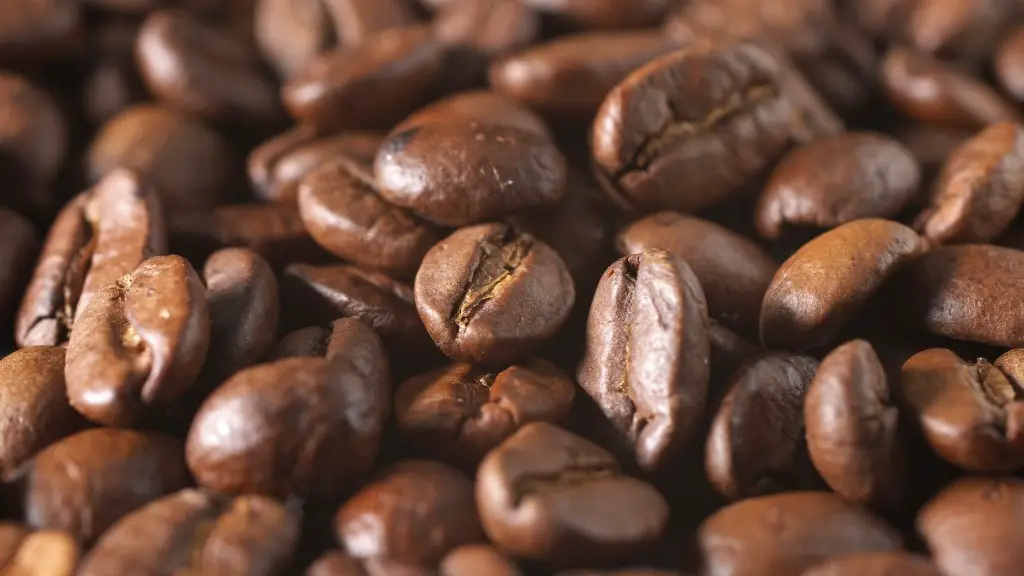Can You Drink Black Coffee Intermittent Fasting?
Intermittent fasting is a pattern of eating where a person alternates between periods of eating and periods of fasting. It’s a popular weight loss strategy, and many studies have reviewd its efficacy. But the question of whether you can still drink black coffee when you’re fasting is still up for debate.
Coffee is a source of natural caffeine. Caffeine is a central nervous system stimulant, so it can affect your sleep and hunger signals. Some intermittent fasting protocols allow you to have black coffee during the fasting hours, because it doesn’t have any caloric value. But others caution against it, due to its potential effects on energy levels.
According to clinical nutritionist Elle Testa, black coffee is an allowed beverage while fasting. “Coffee may contain small amounts of calories, but it’s not accounted for in our calorie calculations due to the negligible amount,” she says. “The small calorie content of coffee is unlikely to affect your ability to reach your fasting goals, so long as you stick with a single cup.”
But that doesn’t mean black coffee is without any impact on your body. “It is important to stay hydrated during the fast, and coffee can replace some of the fluid lost due to dehydration,” says Testa. “But if you’re drinking a lot of coffee, it could cause dehydration, sleep deprivation and emotional stress.”
Registered dietitian Fiona Tuck also recommends limiting your coffee intake while fasting. “I generally suggest that coffee is avoided during the fasting period, as it an be stimulating,” she says. “This can lead to anxiety, mood swings and poor sleep quality, which can all have an impact on your body’s ability to break down and process food in a healthy way.”
Intermittent fasting expert Dr. John Berardi agrees, noting that caffeine can affect your ability to effectively fast. “The key is to be mindful of caffeine and its effects on your body,” he says. “Caffeine can interfere with the hormones that regulate your hunger and energy, so it’s best to avoid during the fasting period.”
What Are The Benefits Of Intermittent Fasting?
Intermittent fasting has numerous health benefits, including weight loss, improved immunity, better digestion, and increased energy. The practice is also a great way to ease into a healthier lifestyle, as it helps your body adjust to a regular eating pattern.
Studies have shown that intermittent fasting lowers insulin levels, which helps the body more efficiently use the calories it takes in. As a result, studies have shown that it can lead to weight loss, as well as improved levels of cholesterol, glucose, and triglycerides.
Intermittent fasting is also known to improve digestion, as it gives the body ample time to rest and recover. Studies have shown that this type of fasting can help reduce inflammation in the digestive system, which can lead to improved digestion.
In addition, intermittent fasting can help with overall energy levels, as it allows your body time to rest and recover. During the fasting period, your body is able to use stored energy, which can lead to higher energy levels.
Finally, intermittent fasting can help boost the immune system. Studies have shown that it can help reduce inflammation, and boost the production of white blood cells – which is key for a healthy immune system.
What Are The Risks Of Intermittent Fasting?
Intermittent fasting is generally safe, but there are some potential risks that should be taken into consideration. It’s important to note that the practice isn’t suitable for everyone, particularly those with underlying health conditions or medical issues.
People with diabetes, thyroid disorders, or who are pregnant or breastfeeding should speak to a medical professional before attempting intermittent fasting. It’s also important to be aware of potential risks of dehydration, nutritional deficiencies, and hunger.
Dehydration is a potential risk for those attempting intermittent fasting, as the fasting period does not provide the body with adequate amounts of water. It’s important to note that dehydration can lead to a number of health issues, including fatigue, nausea, and dizziness.
Nutritional deficiencies are also a potential risk for those attempting intermittent fasting. While most people should be able to get adequate nutrition in their eating period, those who are deleting certain food groups or have other dietary restrictions should pay particular attention to their nutrition during the eating period.
Finally, some people may find it difficult to stick with the intermittent fasting schedule, which can lead to hunger. Ultimately, it’s important to listen to your body, and adjust your eating schedule if needed.
How Can You Maximize Intermittent Fasting Benefits?
In order to get the most out of intermittent fasting, there are certain things you should keep in mind. First and foremost, it’s important to pick an eating plan that works for you, and stick to it.
It’s also important to pay attention to your nutrition while fasting. Choose nutrient-dense foods during the eating period, and make sure you’re getting adequate fuel for energy. Water and other hydrating beverages are also key for staying hydrated and getting the most out of the fasting period.
Finally, it’s important to pay attention to your body’s response to the fasting period. If you’re feeling tired, weak, or overly hungry, make sure to adjust your eating and drinking plan accordingly.
How Can You Properly Begin Intermittent Fasting?
The best way to begin any lifestyle change is to start slowly, and this is true for intermittent fasting as well. Make sure you establish a time period for when you will be fasting, and for when you’ll be eating. This will help you keep track of your progress, and make sure you’re following your eating plan.
It’s also important to keep track of your calorie intake. Studies have shown that intermittent fasting can lead to lower calorie intake, but it’s important to make sure you’re still eating enough to fuel your body. Try to keep track of your calorie intake during the fasting and eating periods, to make sure you’re getting adequate nutrition.
Finally, it’s important to make sure you’re staying hydrated during the fasting period. Water is key for staying healthy and energized, so make sure you’re drinking plenty of it, as well as other hydrating beverages such as herbal teas and natural juices.
Are There Any Alternatives To Intermittent Fasting?
If you’re not interested in intermittent fasting, there are a number of other approaches to healthy eating that you can explore. One option is the Ketogenic Diet, which is a high-fat, low-carb approach to weight loss. This diet can help you lose weight quickly, and it has a number of other health benefits as well.
Another popular option is the Mediterranean Diet, which is a plant-based approach to eating with plenty of fruits, vegetables, and grains. This diet has been linked to a number of health benefits, such as reduced inflammation and improved heart health.
Finally, you may want to look into the Paleo Diet. This diet is based on the eating habits of humans during the Paleolithic era, and consists of mostly fruits, vegetables, lean proteins, and healthy fats. This diet has been linked to improved gut health and improved cardiovascular health.
What Are The Final Takeaways?
Intermittent fasting has become a popular weight loss strategy, and many studies have reviewed its efficacy. The question of whether you can still drink black coffee while fasting is still up for debate – some protocols allow for it, while others caution against it. Ultimately, it’s important to pay attention to how your body responds to the fasting period, and make sure to adjust your eating and drinking schedule if needed.
In addition to following an intermittent fasting plan, it’s important to pay attention to nutrition and hydration. Nutrient-dense foods, adequate calories, and plenty of water are all key for getting the most out of the fasting period.
Finally, if intermittent fasting isn’t the right fit for you, there are plenty of other healthy eating strategies to explore. The ketogenic diet, the Mediterranean diet, and the Paleo diet are all options that you can look into, depending on your dietary preferences.





